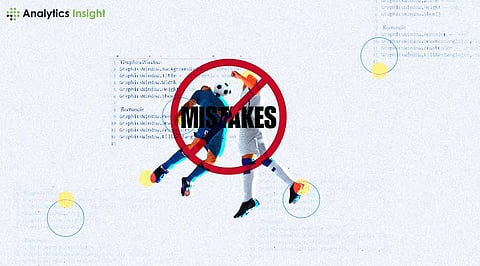

Demand from data scientists has grown, as organizations in every sector begin to realize the power of data in decision-making. However, getting into this competitive field may prove quite a challenge, especially because there are numerous beginners within these sectors. Here are common mistakes one makes while applying, which you should avoid to stand a chance at getting this job. We will explore the most frequent pitfalls and provide tips on how to navigate the job market.
Mistake: Sending in a bland or bad resume.
Your resume can well be the first impression that your target employers shall get about you, so make it count. One common mistake is to send in a generic resume that doesn't highlight relevant skills and experiences.
Solution: Tailor your resume as per the job description. Mention your technical skills in machine learning, such as programming languages—Python and R, data analysis tools like SQL and Excel, and frameworks of machine learning like TensorFlow and Scikit-learn. Give examples to explain the uses of those tools for solving a real problem. Quantify success as much as possible—for example, "increased model accuracy by 15 percent."
Mistake: Lacking other skills apart from technical, like Zen of Python.
While technical skills are important in a data scientist's role, such soft skills as communication, teamwork, and problem-solving are very important. Every employer needs people who will be able to analyze the data but also present insights accurately and appropriately to the nontechnical audience.
Solution: Highlight these soft skills in your resume and cover letter. Give examples of how you worked with cross-functional teams or how you explained complex concepts to a non-technical audience, and also how you managed projects. Be prepared to discuss concrete situations in an interview where your soft skills made all the difference.
Mistake: Apply for any job without reading the description.
Job descriptions say a lot about what an employer is looking for in their candidate. Not heeding these details could result in applying to unsuitable positions—something that wastes your valuable time. Jobs unsuitable for your skills and experience are just time-consuming and lost opportunities.
Solution: Read every job description carefully and make sure that you match the qualifications before you start applying. Make your application tailored to the requirements of the job, highlighting the related skills and experiences in your application. In the event of any gaps in experiences, address them in the cover letter by stating how much you are willing to learn or by stating related experiences that bring out your potential.
Mistake: Focusing too much on theoretical knowledge.
Since data science is a practical domain, real-world datasets and problems are invaluable in terms of gaining hands-on experience. An over-reliance on theoretical knowledge or coursework may be a major flaw.
Solution: Get some practical exposure through internships, projects, or competitions. Provide a record of Kaggle competitions, open-source projects, or personal projects showing one's ability to apply methods in data science. Highlight these experiences in one's résumé and portfolio.
Mistake: Not sharing your work.
An effective portfolio spells out significant differences among prospects, for it manifests proof of abilities and success. Too many candidates do not have a good portfolio.
Solution: Create an online portfolio of the best projects that you have done—attach code samples and visualizations. You can do that on such platforms as GitHub, Kaggle, or even your website. But remember that your portfolio needs to be lean, and clean, with prominent technicalization and a visibly delineated problem-solving approach.
Mistake: Relying only on online applications.
While online application is a requisite in this age, it alone cannot guarantee you much through job portals. Networking can increase manifold the chances of your job quest through hidden job markets and referrals.
Solution: Industry conferences, webinars, meetups—these are succinct locations to network with professionals who work in the line of duty. Join online communities and forums concerning data science and reach out to connections on LinkedIn to request informational interviews, sharing their experiences to offer pieces of advice. A great network may mean job referrals, plus the utmost insight into the industry.
Mistake: Not preparing enough for interviews.
The average data science interview includes these components: technical questions, case studies, and behavioral assessments. Poor preparation at the front end can be detrimental to your success.
Solution: Practice for your interview. Go through the common data science interview questions and prepare your responses. Brush up key concepts, algorithms, and programming skills. Practice case studies; clearly explain your line of thought. Also, be prepared for behavioral questions whereby you reflect on past experiences with relevance to the position applied.
Mistake: No attention paid to company culture and fit.
While technical skills are important, fitting culturally with the company is also important for long-term success and job satisfaction. Many applicants focus only on the technical parts of the job and forget about cultural fit.
Solution: Research the values, mission, and work atmosphere in the company before sending out applications. In the interview, ask about the company culture, details of your team, and balance in work-life. See whether the values of the company align with your values and if you see yourself fitting within that setting.
Mistake: Not following up after an interview or an application.
Not following up may give the impression of a lack of interest or professionalism. This is also an opportunity lost, in terms of reiterating interest in the position and staying on the hiring team's radar.
Solution: Send the thank-you email within 24 hours of your interview. Be thankful for this opportunity and express interest in the position again. Briefly tell why you will be a great fit. For applications, consider following up if you haven't heard back after a couple of weeks.
